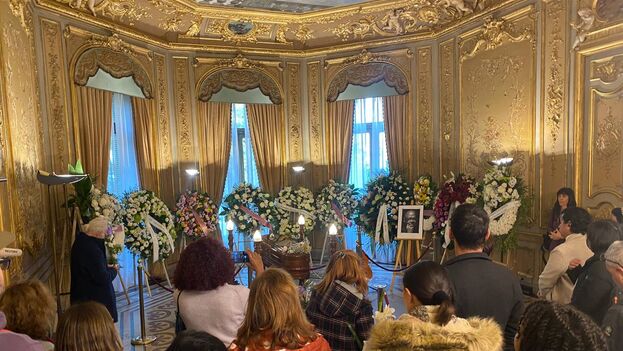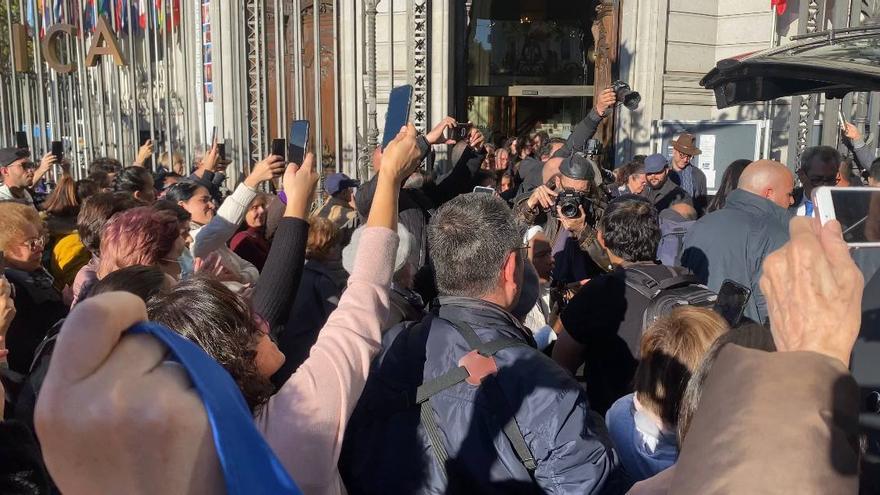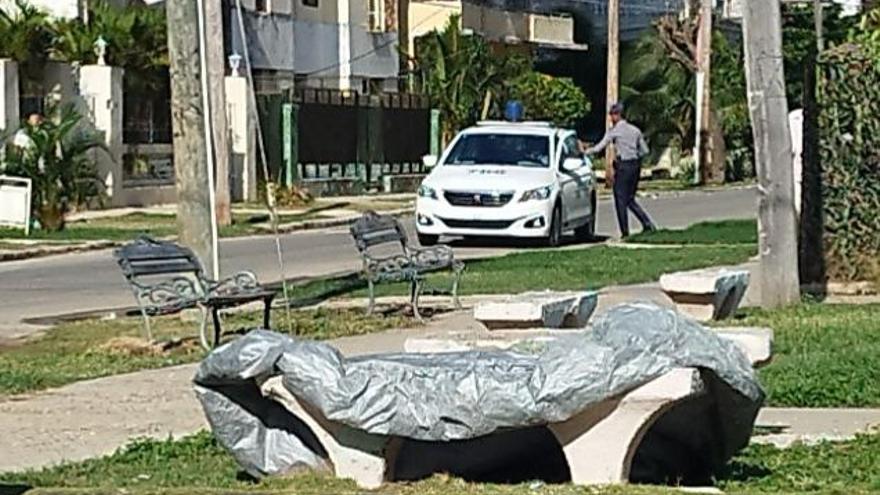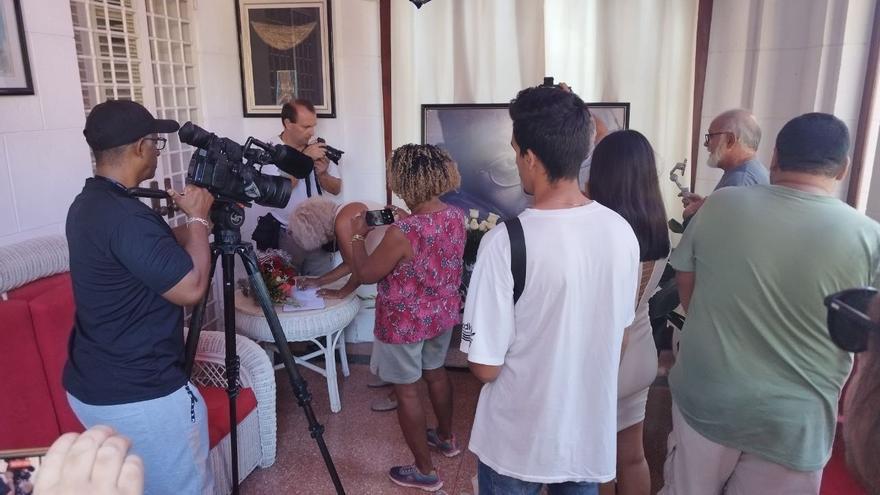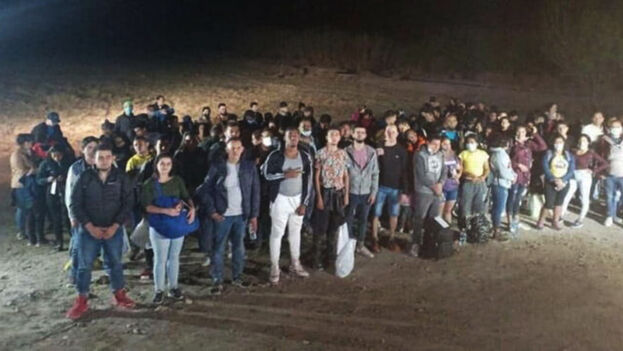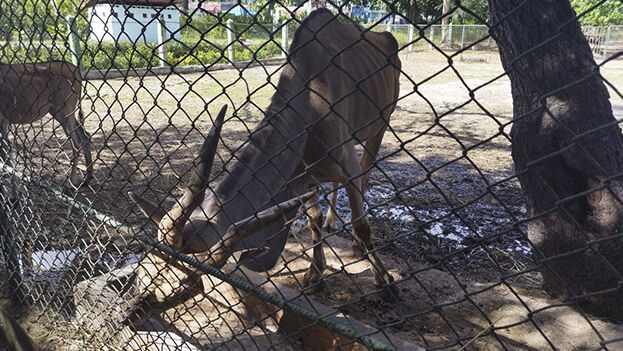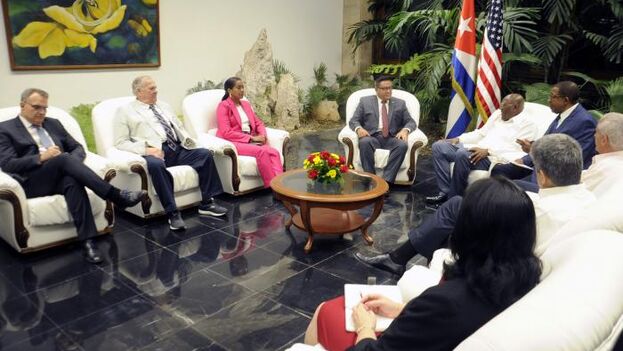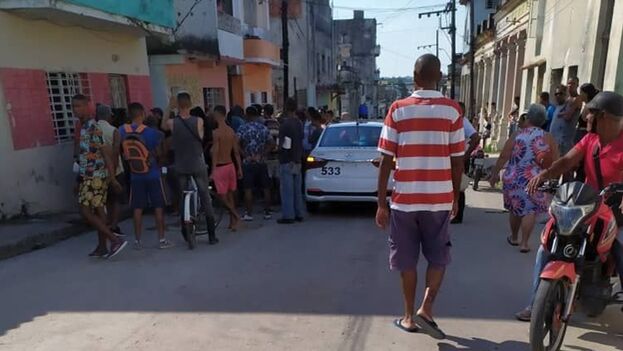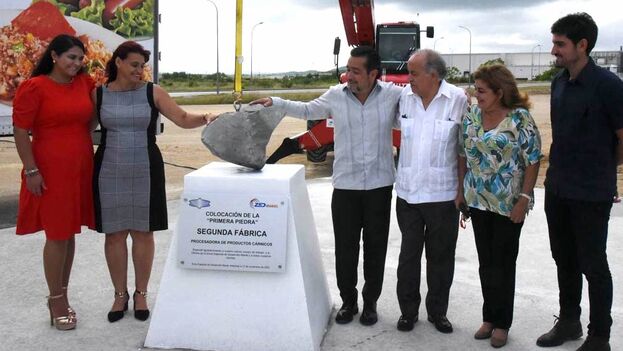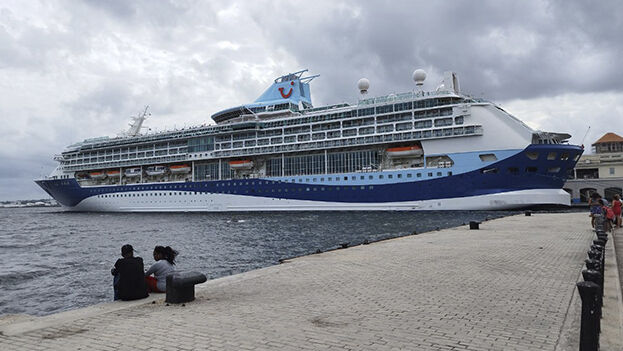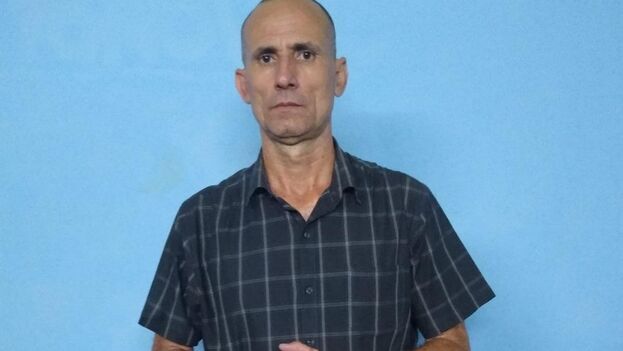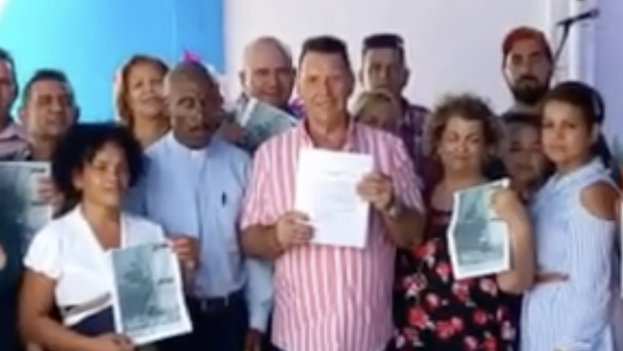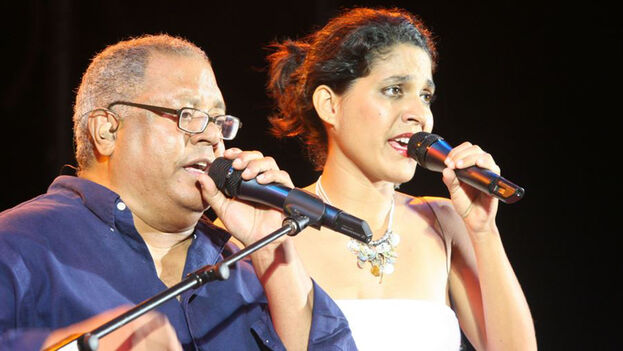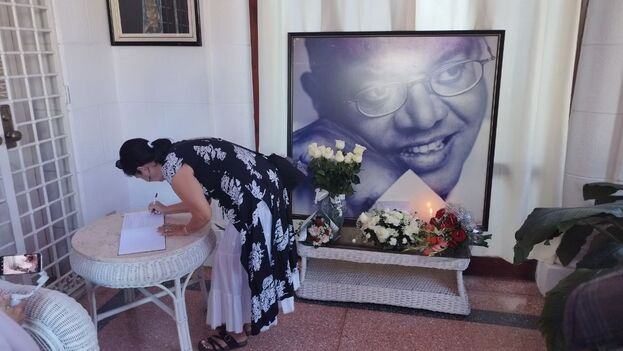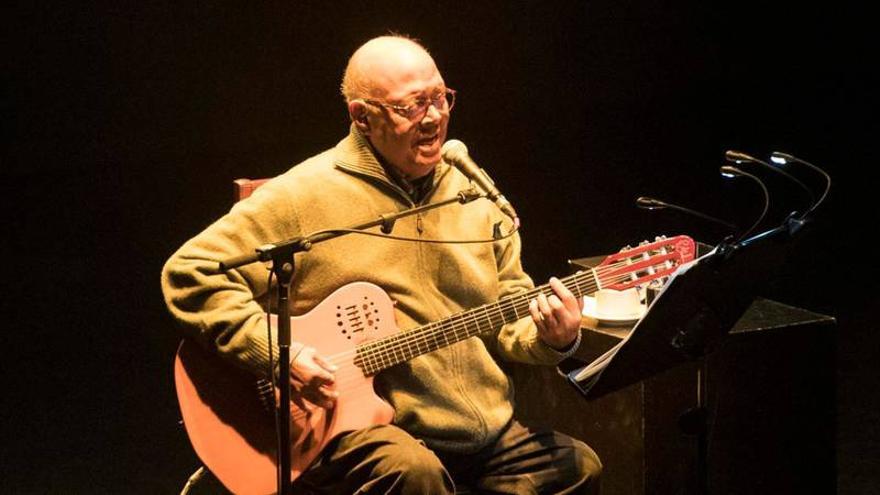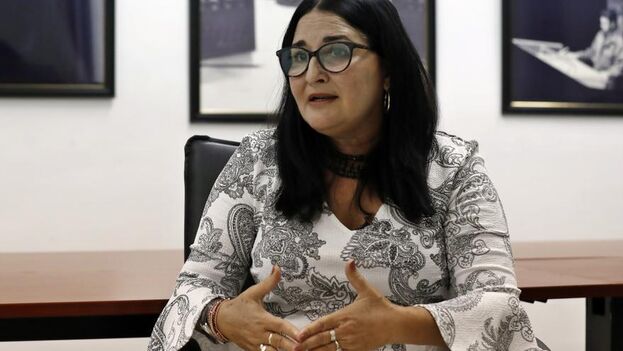“There are some signs, from the increase in bilateral dialogue, that, if the Biden government wanted, important adjustments could be made,” Tablada says in an interview with EFE. “If the United States opens a door, it can always find us,” she adds.
In her opinion, “there are no reasons to have a relationship with Cuba that is not only normal, (but) a good relationship. There are many common issues.”
She points out that a “thaw,” like the one that occurred during the presidencies of Barack Obama in the United States and Raúl Castro in Cuba, is what their country “needs” and it “deserves” to get out of the serious economic crisis — with great scarcity, galloping inflation and elevated migration — that has been dragging on for two years.
The deputy director, present at the migration round of talks held last week in Havana between the United States and Cuba, notes that she observes “some adjustments in the way in which the policy is applied” by Washington.
“In recent months we have seen and recorded, and it’s obvious and visible, an increase in official bilateral exchange between the two governments and an increase in the exchange between agencies of the two governments” on a series of issues from migration to the environment, through health and air regulation, she says. continue reading
However, she hasn’t seen a “change of policy” in Washington, because “unfortunately” the sanctions — even the last twist introduced by the previous president of the United States, Republican Donald Trump — persist “practically” without modifications.
“We will have to see if the Biden administration, beyond increasing the conversation with Cuba, is willing to stop being faithful to Trump’s measures,” she says.
Tablada assures that Cuba has the “will” to solve the problems with “cooperation” and “dialogue” but makes clear its red line: “What Cuba is not willing to do is to negotiate issues of internal and constitutional order with a foreign government.”
She affirms that her country has not changed its strategy toward Washington, despite the lowering of tone, the intensification of contacts, and Cuba’s unusual request for help after Hurricane Ian, to which the United States responded with two million dollars in humanitarian aid from the United States Agency for International Development.
Cuba, Tablada emphasizes, seeks to “find a civilized way in which both countries can take advantage of” what unites them and not what divides them, and the two “can move forward for the benefit” of their peoples. Similarly, the US State Department spoke last week about dialogue with Havana to “advance national interests.”
In the opinion of the deputy director, the electoral results in the mid-term elections in the United States open “a window” for Washington and Havana to move towards the normalization of bilateral relations. In the elections, the Democrats demonstrated unusual strength for being the party in the White House, and they retained the Senate.
“The only way is for us to understand each other, to respect each other, to learn to deal with our differences,” Tablada points out, paraphrasing some recent statements by the president of Cuba, Miguel Díaz-Canel.
Tablada, who denies that Cuba has used migratory pressure against the US at the negotiating table, maintains that it’s the sanctions that are “strangling” their country and promoting emigration, mainly to the United States. In fiscal year 2021-2022, about 225,000 Cubans arrived irregularly at the southern border of the United States, a record figure.
“Vice President Kamala Harris can go to Honduras and say — and I agree with her — that schools must be built so people don’t leave their towns; that hospitals must be built so people don’t have to leave; that people’ lives must be improved… And now they come to Cuba, where there are schools, hospitals, social security… and they say the opposite,” she argues.
She emphasizes that “American incentives” to migration such as sanctions and the Cuban Adjustment Act (which grants permanent residence to Cubans once they have remained in the United States for one year) should not continue. She also says that Washington should end the “injustice” of including Havana on the list of state sponsors of terrorism.
“I am hopeful that Cuba will be removed from the list, but not because the US Government has given us any signal” in this regard, she says.
On the other hand, she assured that “there was no discussion” about human rights with the United States “nor any mention of names” in last week’s bilateral migration round, and that she is willing to resume dialogue on that matter with Washington during the “thaw.”
The official stated that the issue of human rights is, in her opinion, “a pretext, completely fictitious,” from Washington, as well as an “excuse” to keep the sanctions in place.
“There was no discussion on the issue of human rights. There was no mention of names,” Tablada said, despite the fact that this issue was cited in the statement of the Department of State after the meeting.
“We have told the US Government that we are open to resuming the human rights dialogue we had during the Obama and Raúl Governments,” she said.
Tablada also maintained that it’s not true that the US sanctions against the Island are maintained — despite the electoral promises of President Joe Biden — because of the repression after the anti-government protests of July 11, 2021 in Cuba, the largest in sixty years.
She argued that maintaining sanctions is in fact against human rights, because they harm Cubans on a daily basis by depressing their quality of life, and that the United States has good diplomatic relations with countries that are also accused of violating human rights.
The deputy director also indicated that they have provided “accurate information” to Washington about human and drug traffickers “linked to organized crime” and established in Florida, people who participate in human rights violations.
“We have told them and given them precise information that people who organize human trafficking operations are linked to organized crime and that many boatmen who traffic people are the same ones who are involved in drug trafficking and take people to Florida just like they do drugs,” she said.
Tablada stressed that “there has been bilateral collaboration” in this area and that Havana is willing “to strengthen it.” Recently, a meeting was held between the maritime border protection bodies of Cuba and the United States.
In the round of migration talks last week, the second of Biden’s term, along with Tablada, the Undersecretary for Western Hemisphere Affairs, Emily Mendrala, and the Cuban Deputy Minister of Foreign Affairs, Carlos Fernández de Cossio also participated.
Translated by Regina Anavy
____________
COLLABORATE WITH OUR WORK: The 14ymedio team is committed to practicing serious journalism that reflects Cuba’s reality in all its depth. Thank you for joining us on this long journey. We invite you to continue supporting us by becoming a member of 14ymedio now. Together we can continue transforming journalism in Cuba.
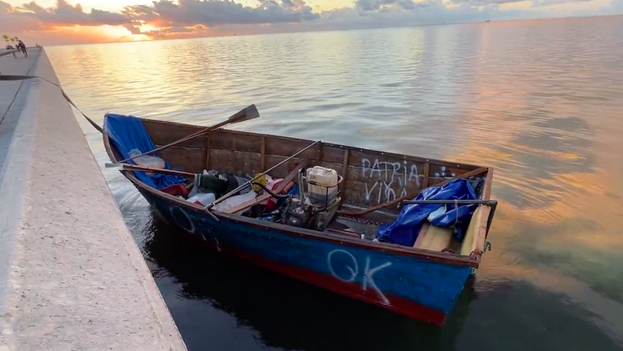
![]() EFE (via 14ymedio), Miami, 24 November 2022 — More than 75 migrants arrived aboard rafts at various points in the Florida Keys in the last few hours, according to official sources who, on Thursday, informed Miami television channel Local 10.
EFE (via 14ymedio), Miami, 24 November 2022 — More than 75 migrants arrived aboard rafts at various points in the Florida Keys in the last few hours, according to official sources who, on Thursday, informed Miami television channel Local 10.
